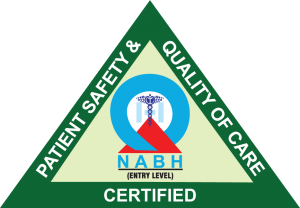BLOG- EMERGENCY & TRAUMA
- Home
- Blog
- Emergency & Trauma
- Aug,1 2022
Emergency & Trauma
First thing about any medical emergency is that one should not take it easily. Only a doctor can decide whether an emergency could be a simple issue or a major one which needs treatment or hospitalisation. So for any emergencies it is best to visit the nearest hospital.
Here are some common emergencies:
Heart Attack
Chest pain could be a sign of heart attack. A heart attack occurs when there is a sudden blockage of blood supply to the heart.
Symptoms of a heart attack are
- Chest pain
- Difficulty in breathing
- Sweating
- Pain in the left-arm that radiates to the other arm, jaw, neck, stomach, back etc.
- Feeling sick or dizzy
Sometimes people don’t have severe symptoms. A heart attack feels like a mild discomfort or indigestion so it is important to know how you feel and seek medical help.
Stroke
Stroke is a life-threatening medical emergency. It occurs when the blood cannot reach the brain properly. Bleeding in the brain or blood clot are common reasons for stroke.
The sooner you get medical attention, the better is the chance of survival and recovery. The symptoms & action can be easily remembered using the acronym FAST
- F for face – Has the face changed and drooped on one side? This can be noticed mainly around the areas of the mouth and eyes.
- A for Arm – Can you lift both your arms? At times of stroke, at least one of the arms gets numb.
- S for Speech – When a person is having a stroke, their speech changes and becomes slurred. See if their speech makes sense or not.
- T for time – If you see these symptoms, you should act immediately. Take medical help as soon as possible.
Burns
Burns are tissue damage resulting from heat, overexposure to the sun or other radiation, or chemical or electrical contact. They can be minor or life-threatening emergencies depending on the severity.
Sunburns and small scalds can usually be treated at home. Deep burns need immediate medical attention. Some may even need treatment followed by months long follow-up care. Burns up to epidermis are 1st degree burns, up to dermis is 2nd degree & burns that reach up to fat & even underneath are 3rd degree burns which may even cause numbness due to nerve damage. Burns may causes other complications such as bloodstream infection, low body temperature, fluid loss etc and there it is important seek medical attention
Accidental falls and fractures
People fall down without much reason. As you age the chances of you falling down increases. The time taken to recover is also more when you fall down. Normal falls are ok. But if there are symptoms such as swelling in the leg or arm, it could be a sign of fracture. A fracture means the bone is broken. It requires medical intervention to ensure that the broken bone is fixed back to bring back to normalcy. Also some fractures like hip fractures are dangerous as they may even cause death.
Poisoning
Poisoning may be caused accidentally or otherwise. In any case some symptoms to look for are
- Burns or redness around the mouth and lips
- Breathe that smells like chemicals, such as gasoline or paint thinner
- Vomiting
- Difficulty breathing or has stopped breathing
- Drowsiness and fainting fits or unconscious
- Confusion or other altered mental status
- Uncontrollably restless or agitated
- Having seizures
If you suspect that someone has consumed poison, rush them to your nearest hospital

